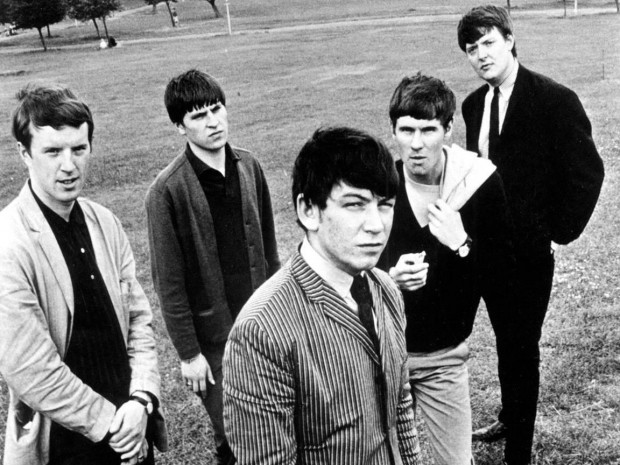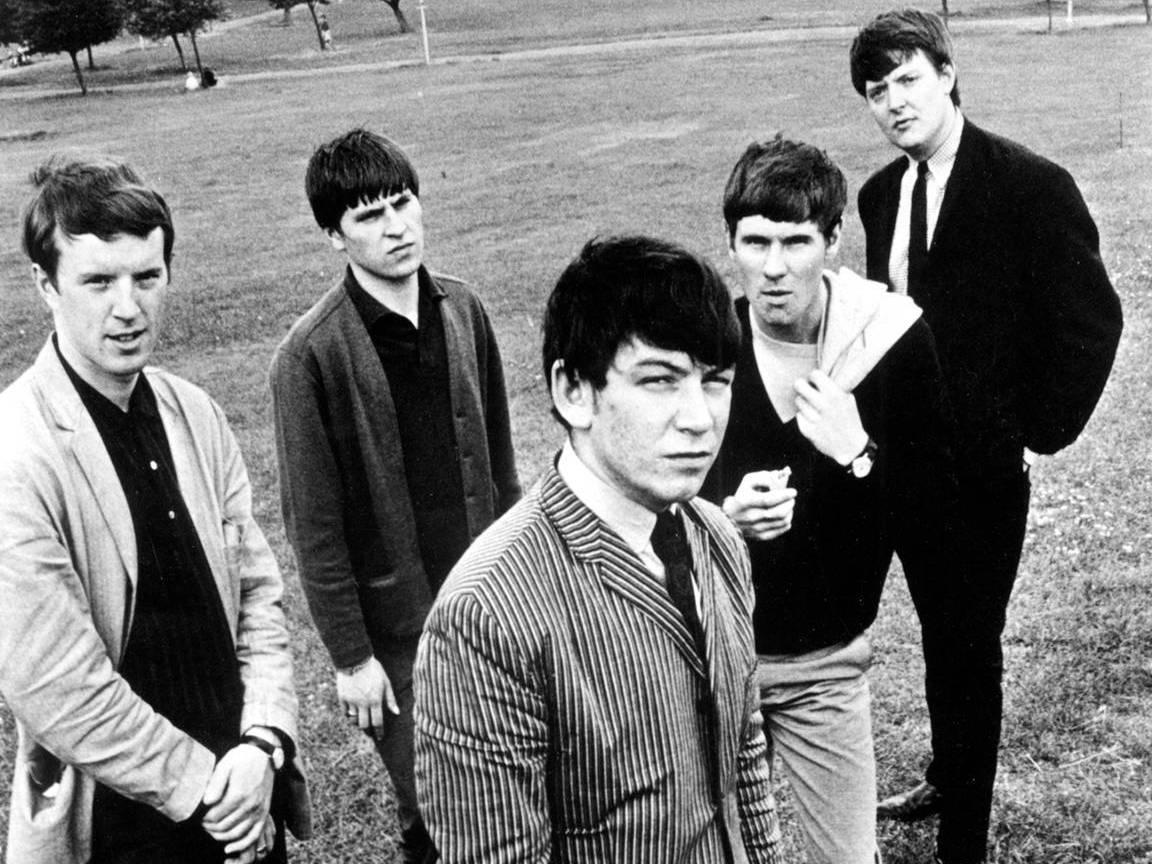Here’s another post from Bro. Paul Henry. Enjoy.

Yesterday afternoon, I reluctantly made my way to the local Walmart to purchase a few items. While in one of the aisles examining something, I realized I was hearing a song from the mid-1960’s by none other than Eric Burdon and The Animals. I thought to myself, “Hmm. . . what’s happenin’ with Walmart Radio?” You might not know much about Eric Burdon and The Animals, and perhaps a number of you don’t care to find out about a rock group that had such a name. Let me just say this: I was a big fan of the Beatles and Rolling Stones in my youth (and who wasn’t?), but as I continue my steady creep into old age, I find that Eric Burdon and The Animals is the group that had (and still has) something going on. What did I really know at the age of nine or ten? And what could The Animals have really taught me then? Add ten more years to that and they could have come to my rescue, but I guess I lacked the good advice of someone writing posts like this one.
When I returned from Walmart, I turned to YouTube to rediscover some of the opus of Eric Burdon and The Animals. I was impressed, and I want to share what I’ve discovered with you. I have a purpose in doing this, of course. I found a song that is a remarkable depiction of our major human affliction: CONCUPISCENCE. The person who produced the video has done a terrific job with the visuals, as you will soon see.
I don’t want this post to be too long and try your patience, good readers, so let me offer the following as a brief presentation of this affliction, and then you can get to the music. What follows is found in Holy Scripture and the Catechism of the Catholic Church (CCC). In a separate comment I will include other pertinent CCC quotations for your perusal and subsequent meditations. I highly recommend that you read what’s in this separate comment because it fills in the details of our human condition and inspires hope for our salvation. You might wonder why Baptism just doesn’t make things easier for us, why if Original Sin is washed away in Baptism we are still struggling with our sins. God allows our human condition to persist for us to grow in love and freedom. This might seem strange, but just remember that God’s ways are not our ways and you can bet on His seeing the big picture. So again, if you really care about yourselves and want the Truth that sets you free, please get a look at the separate comment, and feel free to contact me if you want to discuss things further.
Here is the Scriptural passage from the First Letter of Saint John:
“Do not love the world or the things of the world. If anyone loves the world, the love of the Father is not in him. For all that is in the world, sensual lust, enticement for the eyes, and a pretentious life, is not from the Father but is from the world” (1 John 2: 15-16).
And here are two quotations from the CCC that refer to that Scriptural passage:
377 The “mastery” over the world that God offered man from the beginning was realized above all within man himself: mastery of self. The first man was unimpaired and ordered in his whole being because he was free from the triple concupiscence that subjugates him to the pleasures of the senses, covetousness for earthly goods, and self-assertion, contrary to the dictates of reason. (2514)
2514 St. John distinguishes three kinds of covetousness or concupiscence: lust of the flesh, lust of the eyes, and pride of life. In the Catholic catechetical tradition, the ninth commandment forbids carnal concupiscence; the tenth forbids coveting another’s goods. (377, 400)
CCC QUOTATIONS TAKEN FROM: http://www.usccb.org/…/catechism-of-the-cath…/epub/index.cfm
So here’s the takeaway:
THE TRIPLE CONCUPISCENCE SCHEME
1 John 2: 15-16 =
Sensual lust (Pleasures of the senses/Lust of the flesh = CCC#’s 377 & 2514)
Enticement for the eyes (Covetousness for earthly goods/Lust of the eyes = CCC#’s 377 & 2514)
A pretentious life (Self-assertion/Pride of life = CCC#’s 377 & 2514)
NOW HERE’S THE BRILLIANT SONG & VIDEO:https://www.youtube.com/watch?v=6VNaO9ARdl8
405 Although it is proper to each individual, original sin does not have the character of a personal fault in any of Adam’s descendants. It is a deprivation of original holiness and justice, but human nature has not been totally corrupted: it is wounded in the natural powers proper to it; subject to ignorance, suffering, and the dominion of death; and inclined to sin—an inclination to evil that is called “concupiscence.” Baptism, by imparting the life of Christ’s grace, erases original sin and turns a man back toward God, but the consequences for nature, weakened and inclined to evil, persist in man and summon him to spiritual battle. (2515, 1264)
1426 Conversion to Christ, the new birth of Baptism, the gift of the Holy Spirit and the Body and Blood of Christ received as food have made us “holy and without blemish,” just as the Church herself, the Bride of Christ, is “holy and without blemish.” Nevertheless the new life received in Christian initiation has not abolished the frailty and weakness of human nature, nor the inclination to sin that tradition calls concupiscence [disordered human appetites or desires], which remains in the baptized such that with the help of the grace of Christ they may prove themselves in the struggle of Christian life. This is the struggle of conversion directed toward holiness and eternal life to which the Lord never ceases to call us. (405, 978, 1264)
2515 Etymologically, “concupiscence” can refer to any intense form of human desire. Christian theology has given it a particular meaning: the movement of the sensitive appetite contrary to the operation of the human reason. The apostle St. Paul identifies it with the rebellion of the “flesh” against the “spirit.” Concupiscence stems from the disobedience of the first sin. It unsettles man’s moral faculties and, without being in itself an offense, inclines man to commit sins. (405)
(photo via wunc.org)
